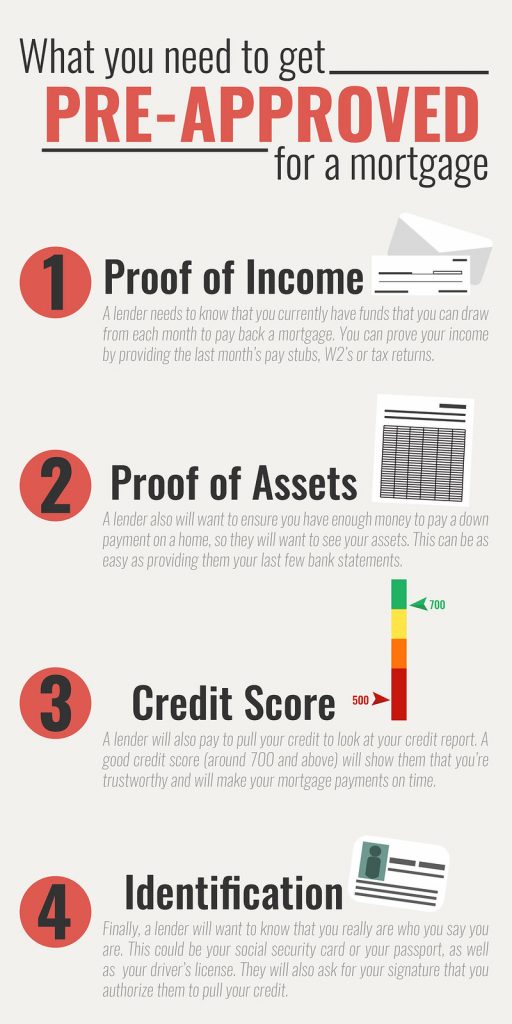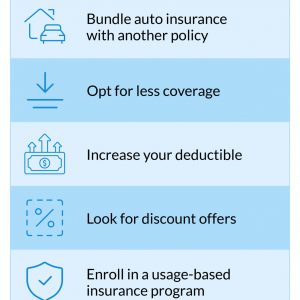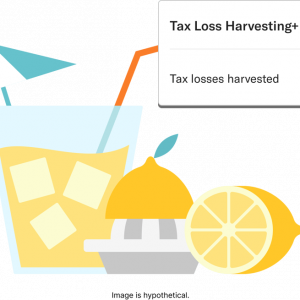
Home Financing Pre Approval. If you are planning to buy a home, one of the most important steps you can take is to get pre approved for a mortgage. Pre approval is a process where a lender reviews your financial situation and determines how much you can borrow, what interest rate you qualify for, and what loan program you are eligible for. Pre approval can give you several advantages in the home buying process, such as:
- It shows sellers and real estate agents that you are a serious and qualified buyer, which can make your offer more attractive and competitive.
- It helps you narrow down your home search by giving you a realistic budget and price range.
- It saves you time and hassle by avoiding surprises or delays in the closing process.
However, getting pre approved for a home loan is not a guarantee that you will get the final approval or the exact terms that you were quoted. There are still some factors that can affect your eligibility and loan amount, such as:
- Your credit score and history, which can change over time or due to new inquiries or accounts.
- Your income and employment, which can fluctuate or change depending on your situation.
- Your debt-to-income ratio, which is the percentage of your monthly income that goes towards paying your debts.
- The property appraisal, which is an estimate of the home’s value and condition by a professional appraiser.
- The market conditions, which can affect the interest rates and loan availability.
Therefore, it is important to understand what pre approval means, what it does not mean, and what you need to do to maintain or improve your chances of getting the final approval. In this article, we will explain the basics of home financing pre approval, how to get pre approved, and what to do after you get pre approved.
Key Takeaways
| What is pre approval? | Why is it important? | How to get pre approved? | What to do after pre approval? |
|---|---|---|---|
| Pre approval is a process where a lender reviews your financial situation and determines how much you can borrow, what interest rate you qualify for, and what loan program you are eligible for. | Pre approval can give you several advantages in the home buying process, such as showing your credibility, setting your budget, and saving time and hassle. | To get pre approved, you need to fill out a loan application, provide documentation of your income, assets, debts, and credit, and pay a fee for the credit check and the pre approval letter. | After you get pre approved, you need to keep your financial situation stable, shop for a home within your price range, compare loan offers from different lenders, and update your lender with any changes or new information. |
How to Get Pre Approved for a Home Loan
Getting pre approved for a home loan is not a difficult or complicated process, but it does require some preparation and documentation. Here are the steps you need to follow to get pre approved:
- Choose a lender. The first step is to find a lender that you want to work with. You can compare different lenders based on their reputation, customer service, loan programs, interest rates, fees, and reviews. You can also ask for referrals from your friends, family, or real estate agent. You can apply for pre approval with more than one lender, but keep in mind that each lender will do a hard inquiry on your credit, which can lower your score by a few points. Therefore, it is advisable to limit your applications to a few lenders and do them within a short period of time (usually 14 to 45 days), so that they are treated as a single inquiry for scoring purposes.
- Fill out a loan application. The next step is to fill out a loan application with the lender of your choice. You can do this online, over the phone, or in person. The loan application will ask for your personal information, such as your name, address, social security number, date of birth, marital status, and citizenship. It will also ask for your financial information, such as your income, assets, debts, and credit. You will need to provide an estimate of how much you want to borrow and what type of property you are looking for. You will also need to authorize the lender to check your credit and verify your information.
- Provide documentation. The lender will then ask you to provide documentation to support your loan application. The exact documents you need may vary depending on the lender and the loan program, but generally, you will need to provide the following:
- Proof of income. This can include your pay stubs, W-2 forms, tax returns, bank statements, and other sources of income, such as alimony, child support, rental income, or investment income.
- Proof of assets. This can include your bank statements, investment statements, retirement accounts, and other assets, such as real estate, vehicles, or personal property.
- Proof of debts. This can include your credit card statements, loan statements, car payments, student loans, alimony, child support, and other monthly obligations.
- Proof of identity. This can include your driver’s license, passport, or other government-issued ID.
- Pay a fee. The lender will also charge you a fee for the credit check and the pre approval letter. The fee can range from $0 to $100, depending on the lender and the loan program. Some lenders may waive the fee or refund it if you end up getting a loan from them. The fee is usually non-refundable if you do not get pre approved or if you choose a different lender.
- Get a pre approval letter. After the lender reviews your application and documentation, they will issue you a pre approval letter. The pre approval letter is a document that states how much you can borrow, what interest rate you qualify for, and what loan program you are eligible for. The pre approval letter is usually valid for 60 to 90 days, depending on the lender and the market conditions. The pre approval letter is not a binding contract, but it is a conditional commitment from the lender, subject to verification and approval of the property and the final loan terms. You can use the pre approval letter to show sellers and real estate agents that you are a serious and qualified buyer, and to make an offer on a home.
What to Do After You Get Pre Approved for a Home Loan
Getting pre approved for a home loan is a great way to start your home buying journey, but it is not the end of it. There are still some things you need to do after you get pre approved, such as:
- Keep your financial situation stable. One of the most important things you need to do after you get pre approved is to maintain or improve your financial situation. This means avoiding any major changes or actions that can affect your income, assets, debts, or credit, such as:
- Changing your job or income source
- Making large purchases or taking on new debt
- Closing or opening new credit accounts
- Missing or making late payments
- Applying for new credit or loans
Any of these changes or actions can lower your credit score, increase your debt-to-income ratio, or raise red flags for the lender. This can jeopardize your pre approval or result in a lower loan amount, a higher interest rate, or a denial of the final approval. Therefore, it is best to wait until you close on your home before making any significant financial moves.
- Shop for a home within your price range. Another thing you need to do after you get pre approved is to shop for a home that fits your budget and preferences. You can use the pre approval letter as a guide to determine how much you can afford and what type of property you are looking for. You can also use online tools, such as Zillow, Trulia, or Realtor.com, to search for homes in your desired area, neighborhood, and price range. You can also work with a real estate agent who can help you find and view homes, negotiate the price and terms, and handle the paperwork and closing process.
- Compare loan offers from different lenders. Getting pre approved does not mean that you have to get a loan from the same lender. You can still shop around and compare loan offers from different lenders to find the best deal for your situation. You can compare lenders based on their interest rates, fees, points, closing costs, and customer service. You can also compare different loan programs, such as fixed-rate, adjustable-rate, conventional, FHA, VA, or USDA loans, to see which one suits your needs and qualifications. You can request a loan estimate from each lender, which is a standardized document that shows the key features and costs of the loan. You can use the loan estimate to compare the loan offers and choose the best one for you.
- Update your lender with any changes or new information. The last thing you need to do after you get pre approved is to keep your lender updated with any changes or new information that may affect your loan application. For example, if you find a home that you want to buy, you need to inform your lender and provide them with the purchase contract, the property address, and the seller’s information. You also need to provide your lender with any additional documentation that they may request, such as the property appraisal, the home inspection report, the title report, the homeowners insurance, and the proof of funds for the down payment and closing costs. You also need to notify your lender if there are any changes in your financial situation, such as a
How to Maintain or Improve Your Chances of Getting the Final Approval
Getting pre approved for a home loan is not a guarantee that you will get the final approval or the exact terms that you were quoted. There are still some factors that can affect your eligibility and loan amount, such as your credit score and history, your income and employment, your debt-to-income ratio, the property appraisal, and the market conditions. Therefore, it is important to understand what pre approval means, what it does not mean, and what you need to do to maintain or improve your chances of getting the final approval. Here are some tips to help you do that:
- Check your credit report and score. Your credit report and score are one of the most important factors that lenders use to evaluate your creditworthiness and loan terms. You can get a free copy of your credit report from each of the three major credit bureaus (Equifax, Experian, and TransUnion) once a year at www.annualcreditreport.com. You can also get your credit score from various sources, such as your credit card issuer, your bank, or online services, such as Credit Karma, Credit Sesame, or NerdWallet. You should check your credit report and score regularly and look for any errors or discrepancies that may lower your score or affect your loan application. If you find any errors, you should dispute them with the credit bureau and the creditor as soon as possible. You should also monitor your credit score and try to improve it by paying your bills on time, keeping your credit card balances low, and avoiding new inquiries or accounts.
- Verify your income and employment. Your income and employment are another important factor that lenders use to determine your ability to repay the loan and your loan amount. You should verify your income and employment with your lender and provide them with any updates or changes that may occur during the loan process. For example, if you get a raise, a bonus, or a promotion, you should inform your lender and provide them with the proof of the increased income. This can help you qualify for a higher loan amount or a lower interest rate. On the other hand, if you lose your job, change your employer, or switch to a different income source, you should also inform your lender and provide them with the proof of the new income. This can help you avoid any delays or denials in the loan approval. You should also avoid quitting your job or taking a leave of absence before you close on your home, as this can jeopardize your loan approval.
- Manage your debt-to-income ratio. Your debt-to-income ratio (DTI) is the percentage of your monthly income that goes towards paying your debts. Lenders use your DTI to measure your debt burden and your ability to handle the monthly mortgage payments. The lower your DTI, the better your chances of getting approved for a loan and getting favorable loan terms. The ideal DTI for most lenders is 36% or lower, but some lenders may accept higher DTIs depending on the loan program and your credit profile. You should manage your DTI by paying off or reducing your existing debts, such as credit cards, car loans, student loans, or personal loans. You should also avoid taking on new debt or making large purchases before you close on your home, as this can increase your DTI and lower your loan amount or interest rate.
- Prepare for the property appraisal. The property appraisal is an estimate of the home’s value and condition by a professional appraiser. The lender will order the appraisal after you find a home and make an offer. The appraisal is important because it determines the loan-to-value ratio (LTV), which is the percentage of the home’s value that you are borrowing. The lower the LTV, the lower the risk for the lender and the better the loan terms for you. The ideal LTV for most lenders is 80% or lower, but some lenders may accept higher LTVs depending on the loan program and your credit profile. You should prepare for the property appraisal by doing your own research on the home’s value and the comparable sales in the area. You should also inspect the home and look for any defects or issues that may affect the appraisal value, such as structural problems, water damage, mold, termites, or outdated features. You should also negotiate with the seller to fix any problems or lower the price if the appraisal comes in lower than the offer price.
- Watch the market conditions. The market conditions are another factor that can affect your loan approval and loan terms. The market conditions include the supply and demand of homes, the interest rates, the inflation, and the economic outlook. The market conditions can change over time and affect the availability and affordability of loans. You should watch the market conditions and be aware of any trends or changes that may impact your loan application. For example, if the interest rates rise, you may have to pay more for your loan or qualify for a lower loan amount. If the home prices fall, you may have to renegotiate the offer price or bring more money to the closing. If the economy slows down, you may have to deal with more competition or stricter lending standards. You should also lock in your interest rate with your lender as soon as possible, as this can protect you from any fluctuations in the market conditions.
Conclusion
Home financing pre approval is a process where a lender reviews your financial situation and determines how much you can borrow, what interest rate you qualify for, and what loan program you are eligible for. Pre approval can give you several advantages in the home buying process, such as showing your credibility, setting your budget, and saving time and hassle. However, getting pre approved for a home loan is not a guarantee that you will get the final approval or the exact terms that you were quoted. There are still some factors that can affect your eligibility and loan amount, such as your credit score and history, your income and employment, your debt-to-income ratio, the property appraisal, and the market conditions. Therefore, it is important to understand what pre approval means, what it does not mean, and what you need to do to maintain or improve your chances of getting the final approval. By following the steps and tips in this article, you can get pre approved for a home loan and move closer to your dream home.
I hope you found this article helpful and informative. If you have any questions or feedback, please let me know.





